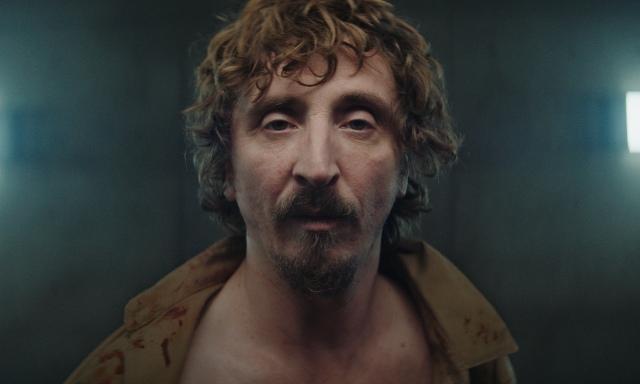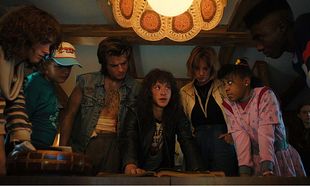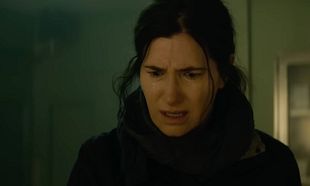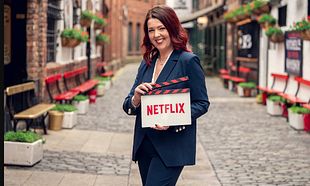If you haven't already watched Netflix's 'The Platform' then let us stop you right there and ask you to please leave. Now, if you're still with us then that means you were left scratching your head at the end of the Netflix thriller just like the rest of us.
There's no doubt about it that 'The Platform' is about Capitalism, consumerism, and just how damned awful humans can be. In the final act of the Netflix thriller, we see Goreng (Iván Massagué) and Baharat (Emilio Buale Coka) make their gory way down through each floor of the grim jail that they have found themselves in and attempt to send a message to the all-powerful administration. After Goreng and the child finally reach the end of their journey down to level 333, the movie ends abruptly. So... what was 'The Platform' ending really about?
Director Galder Gaztelu-Urrutia recently chatted with Collider on that very subject, and here's what he had to say on the matter.
Responding to being asked if Goreng's message was received finally by the administration, the director said: "That’s something that you should ask society. It’s up to all of us… It depends on whether we want to remain the most miserable species that have ever set foot on this planet or if we want to..."
Essentially, Gaztelu-Urrutia believes that 'The Platform' ending is open to each viewer's interpretation. Should you wish Goreng to succeed, then you're a fairly optimistic person - with the opposite true if you believe that he failed. And lord knows, we need heaps of optimism in this world today - so yes, let's say he succeeded.
On the subject of Goreng's discovery of the little girl while travelling downwards, the director is even more coy with this information. When asked if she is the daughter Miharu, he says: "I know this, but I’m not going to reveal it … Street thrill tricks…"
And the question we are most intrigued to be answered is - what the hell is the administration's plan? Here, the director is a bit more forthcoming, saying: "What matters is what each of us do with the cards that we got. This happens at the level at which we are at. Of course, we have to protest and report injustice but, are we going to keep shielding ourselves so that others – people or power structures – do it wrongly so that we don’t do what we have to do?
"As I said before, this is a social self-criticism. I don’t feel authorized at all to tell anyone what to do. The film only aspires to expose, not to indoctrinate or to lecture. And, of course, there are many who do what they have to do, but most of us spent the day looking for excuse..."
To read the full interview about 'The Platform' ending with director Galder Gaztelu-Urrutia, head over to Collider - and let us know if you can solve his smoke and mirror answers.









































































